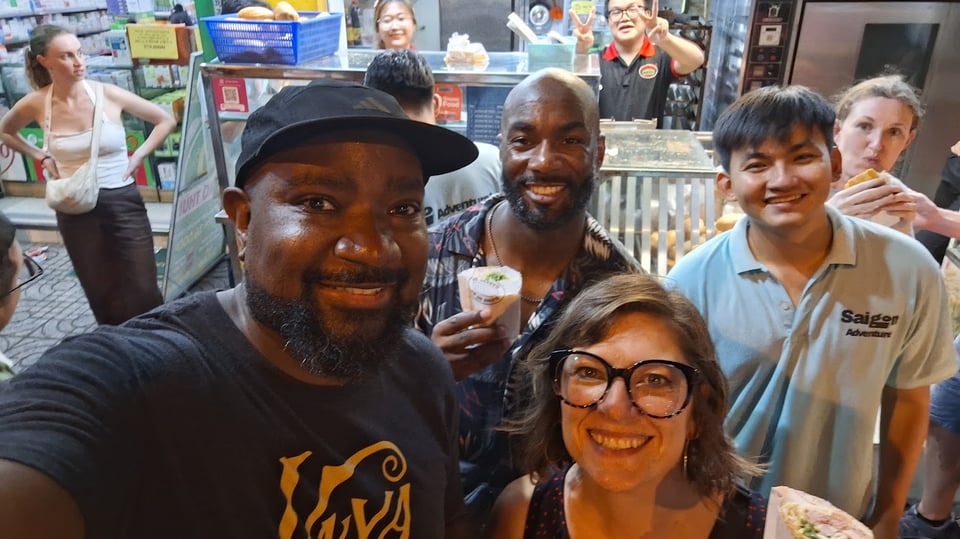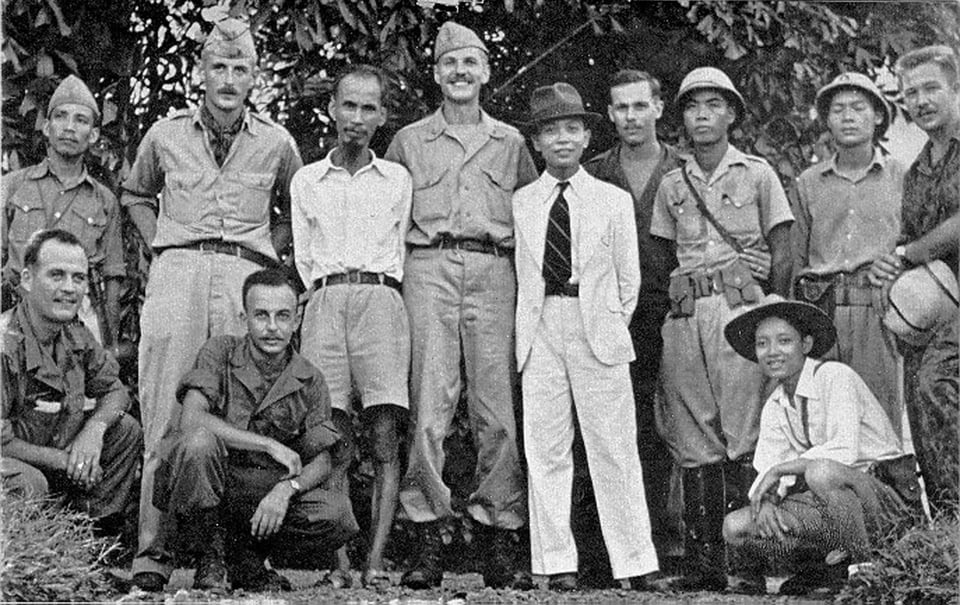More Ideologues, Fewer Partisans

Greetings from Ho Chi Minh City (although everyone here still calls it Saigon). We arrived in Viet Nam on Thursday (after a twelve hour flight, ten hour layover and two hour delay, and a three hour flight into the city).
We will be here for just short of two weeks in total, first in Saigon then in Hoi An. As an aside, if you have imbibing or dining recs in either city feel free to HMU.
All the hype you hear about traveling to Viet Nam is one thousand percent true. The country is just dope. The food is ELITE, cheap as hell, and history flows through the streets. There are monuments to their war for independence (and reunification), or what they call “the American War” everywhere. Friday we visited President Diem’s former palace and the spot where Vietnamese monk Thích Quảng Đức self immolated in protest of the religious discrimination from the US backed government in June of 1963. Later today we’re heading to the War Remnants Museum.
We tried to visit the former US embassy and ended up getting a history lesson on the misattribution of the iconic photo of the last US officials being evacuated in 1975. The actual embassy was elsewhere. It was razed after the war and is now a park.

Yesterday, we toured the Mekong Delta region of the country. We had an extremely talkative, former Vietnamese Army drill sergeant for a tour guide named “Jack.” Once bruh sniffed me out as a history nerd—we got a Dan Carlin-esque telling of Viet Nam’s history and geopolitical situation. Much of our conversation centered on Ho Chi Minh, functionally the founder of the modern state of Viet Nam, a giant of the prior century. When you read his biographies, you’re left wondering how in the hell did one person experience so much? Born under French occupation, he spent much of life traveling the world, before returning to Viet Nam to help liberate his country from three different regimes: Imperial Japan during World War II, French colonial domination after the war, and finally from the US.

While in the US he attended meetings of Marcus Garvey’s Pan-Africanist Universal Negro Improvement Association and in Paris he was a founding member of the French Communist Party. Fully committed to nationalism and independence for Viet Nam, he worked with the US OSS (pre-CIA) to oppose Japanese military occupation. Before cementing relations with the USSR and PRC, he approached multiple US Presidents seeking their help in gaining independence for Viet Nam only to be rebuffed and ignored—most notably by Woodrow Wilson and Harry Truman.
I knew most of this history but I didn’t know this history.
This morning, thanks to jetlag, I woke up at about 5:00am, with my head spinning about the conversations with Jack. I started connecting our conversation to the documentary series HyperNormalisation by British director Adam Curtis. I was first introduced to Curtis’ archive raiding style of film making in the 2010s. His films most notably The Century of the Self, Bitter Lake, and The Power of Nightmares raid the BBCs deep repository of film footage; he uses it to explain long-term societal trends around a rise of consumerism and the death of meaningful democracy.
If you’ve never watched a Curtis film, honestly, stop reading this and set aside the afternoon to do so.
In HyperNormization (trailer below), the premise is that after the end of the Cold War, in what Fukuyama termed the End of History, we gave up utopian and revolutionary thinking and settled for consumerism and our now stale bipartisan neoliberal consensus. I touched on this death of utopian thinking in a 2024 edition of the newsletter, discussing the interwar period, but it came rushing back to me today.
Our world today is largely devoid of Ho Chi Minh-like figures (because the CIA assassinates them all, kidding… and also not kidding).
What’s striking about Ho Chi Minh is his lifelong commitment to a single idea: an independent Viet Nam. He’s almost an accidental communist. If Wilson would have listened to his pleas for independence at Versailles, the twentieth century looks very different for both the US and Viet Nam.
In contrast to Ho Chi Minh’s strident, committed nationalism, we live instead in an era of partisanship, where two Big Tent parties shed what were once core principles, like snakes molting their skins, in order to woo factions of the electorate. We now hurl the word “ideologue” at people like it’s a slur. Voters and partisan media instead simp for shape-shifters, who stand for nothing, and partisans defend their chosen oligarch even against the worst imaginable accusations and affiliations.
This explains small government conservatives cheerleading for both warrantless surveillance after 9/11 and today’s ICE kidnappings. It’s why Democrats flip-flopped on both civil rights (yay!) and free trade (meh) in the twentieth century. It also helps you understand the decade-long cycle of Chuck Schumer saying “Democrats must defeat Republicans” and then coming into power and delivering absolutely nothing of substance, leading to an electoral thrashing in the subsequent election.
Partisans are moorless, following their party (or its appointed leaders); ideologues lead their parties toward a political program.
We desperately need more ideologues.
This is why “vote blue, no matter who” non-sense rubs me like two-grit sandpaper. It’s a brain-dead surrender to partisanship and demonstrates the vacuum of meaningful political vision.
I think I will leave it there.
Go watch some Adam Curtis and I will see you next week!